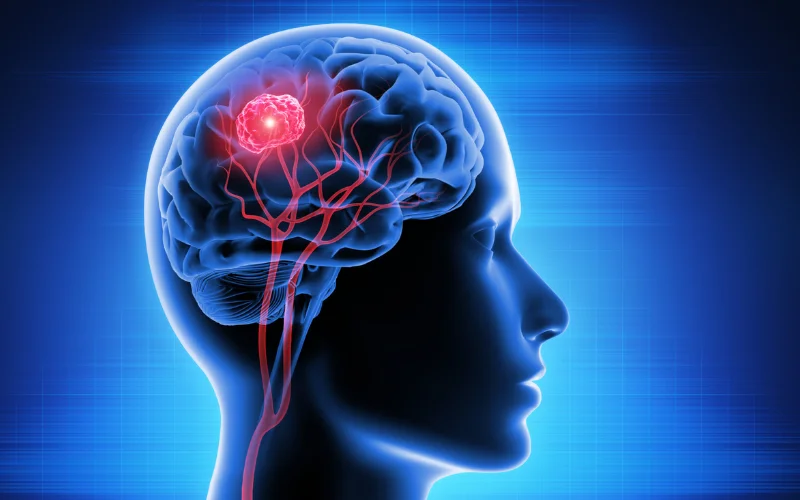Mental illness affects millions of people worldwide, impacting their daily lives and overall well-being. Understanding the different types of mental illness is crucial for raising awareness, reducing stigma, and promoting mental health. These conditions can vary in severity and impact, but with the right support and treatment, individuals can lead fulfilling lives. In this article, we will explore various mental health challenges, providing valuable insights and practical information to help readers understand and recognize various conditions.
Different Types of Mental Illness

Mental illnesses encompass a broad range of conditions that affect mood, thinking, and behavior. Understanding the different types of mental illness is crucial for recognizing symptoms and seeking appropriate treatment. This section delves into both common and less common mental health conditions to provide a comprehensive overview.
Anxiety Disorders
Anxiety disorders are characterized by excessive fear and worry, which can interfere with daily activities. These conditions are highly treatable, yet many people go undiagnosed.
- Generalized Anxiety Disorder (GAD): Persistent and excessive worry about various aspects of life.
- Panic Disorder: Recurring panic attacks and intense fear of future attacks.
- Social Anxiety Disorder: Extreme fear of social situations and being judged by others.
Mood Disorders
Mood disorders significantly affect an individual’s emotional state, often leading to periods of intense sadness or overly elevated moods. Proper diagnosis and treatment are essential for managing these conditions.
- Depression: Persistent feelings of sadness and loss of interest in activities.
- Bipolar Disorder: Extreme mood swings between mania and depression.
- Cyclothymic Disorder: Milder form of bipolar disorder with less severe mood swings.
Psychotic Disorders
Psychotic disorders involve distorted thinking and perception, often leading to hallucinations and delusions. These conditions require comprehensive treatment and support.
- Schizophrenia: Severe mental disorder involving hallucinations, delusions, and disorganized thinking.
- Schizoaffective Disorder: Combination of schizophrenia symptoms and mood disorder symptoms.
Eating Disorders
Eating disorders involve unhealthy eating habits and extreme concern about body weight and shape. They can have serious physical and psychological consequences.
- Anorexia Nervosa: Extreme restriction of food intake and fear of gaining weight.
- Bulimia Nervosa: Binge eating followed by purging behaviors.
- Binge-Eating Disorder: Recurrent episodes of eating large quantities of food without purging.
Personality Disorders
Personality disorders involve enduring patterns of behavior, cognition, and inner experience that deviate from cultural expectations. These patterns can lead to significant distress and impairment.
- Borderline Personality Disorder: Instability in relationships, self-image, and emotions.
- Antisocial Personality Disorder: Disregard for the rights of others and lack of empathy.
Less Common Mental Illnesses

While some mental illnesses are widely recognized, others are less common but equally important to understand. These conditions may be less frequently diagnosed but still have significant impacts on individuals’ lives. This section highlights some of these less common mental health conditions.
Obsessive-Compulsive Disorder (OCD)
Obsessive-Compulsive Disorder (OCD) is characterized by persistent, unwanted thoughts (obsessions) and repetitive behaviors (compulsions). Individuals with OCD may feel compelled to perform certain rituals, such as excessive hand-washing or checking locks, to alleviate anxiety. These behaviors can significantly disrupt daily life and require a combination of therapy and medication for effective management.
Post-Traumatic Stress Disorder (PTSD)
Post-Traumatic Stress Disorder (PTSD) occurs after experiencing or witnessing a traumatic event. Symptoms include flashbacks, severe anxiety, and uncontrollable thoughts about the event. PTSD can affect anyone, from military veterans to survivors of accidents or natural disasters. Treatment typically involves trauma-focused therapy and sometimes medication to help manage symptoms.
Somatic Symptom Disorder
Somatic Symptom Disorder is characterized by an intense focus on physical symptoms, such as pain or fatigue, that causes significant distress and interferes with daily functioning. Individuals with this disorder may frequently visit doctors and undergo numerous medical tests, often without a clear physical cause. Treatment usually includes cognitive-behavioral therapy (CBT) and sometimes medication to address the associated anxiety and depression. Somatic therapy exercises can also be beneficial in addressing these symptoms by focusing on the mind-body connection.
Impact of Mental Illness on Daily Life

Mental illness can impact various aspects of an individual’s daily life, including their work, relationships, and physical health. Understanding these impacts is crucial for managing symptoms and seeking appropriate support.
Work and Productivity
Mental illness can significantly affect an individual’s ability to work and maintain productivity. Symptoms such as fatigue, lack of concentration, and emotional instability can hinder job performance and lead to absenteeism.
Relationships and Social Life
Mental health challenges can strain relationships with family, friends, and colleagues. Social withdrawal, communication difficulties, and mood swings can create barriers to maintaining healthy interpersonal relationships.
Physical Health
Mental illness often has a direct impact on physical health. Conditions like depression and anxiety can lead to chronic pain, gastrointestinal issues, and a weakened immune system. It’s essential to address both mental and physical health for overall well-being.
Diagnosis and Treatment

Proper diagnosis and treatment are vital for managing mental illness effectively. Mental health professionals use various methods to diagnose and treat mental health conditions, ensuring individuals receive the care they need.
Diagnosis Methods
Mental health professionals use a combination of interviews, questionnaires, and psychological assessments to diagnose mental illness. Accurate diagnosis is the first step toward effective treatment.
Treatment Options
Treatment for mental illness often involves a combination of medication, therapy, and lifestyle changes. Common treatment methods include:
- Medication: Antidepressants, antipsychotics, and mood stabilizers can help manage symptoms.
- Therapy: Cognitive-behavioral therapy (CBT), dialectical behavior therapy (DBT), and other therapeutic approaches can provide coping strategies and emotional support.
- Lifestyle Changes: Regular exercise, a balanced diet, and stress management techniques can improve mental health.
Conclusion
Understanding the different types of mental illness is crucial for recognizing symptoms, seeking timely treatment, and offering support to those affected. Mental health conditions, whether common or less common, can have profound impacts on an individual’s life, but with the right care and support systems, effective management and recovery are possible. By raising awareness and reducing stigma, we can create a more compassionate and supportive environment for everyone dealing with mental health challenges.
FAQs
How can I recognize the symptoms of mental illness?
Symptoms of mental illness vary by condition but often include changes in mood, behavior, and thinking. Common signs include excessive worry, persistent sadness, mood swings, hallucinations, and changes in eating or sleeping patterns. If you notice these symptoms in yourself or others, it’s important to seek professional help.
How can I support a loved one with mental illness?
Supporting a loved one with mental illness involves being patient, listening without judgment, and encouraging them to seek professional help. Educate yourself about their condition, offer to accompany them to appointments, and help them build a strong support network. It’s also important to take care of your own mental health while providing support.
Are mental illnesses curable?
While many mental illnesses are not considered curable, they are often highly manageable with the right treatment and support. Medications, therapy, lifestyle changes, and strong support systems can help individuals lead fulfilling lives. The goal is often to achieve remission of symptoms and maintain long-term mental health stability.







